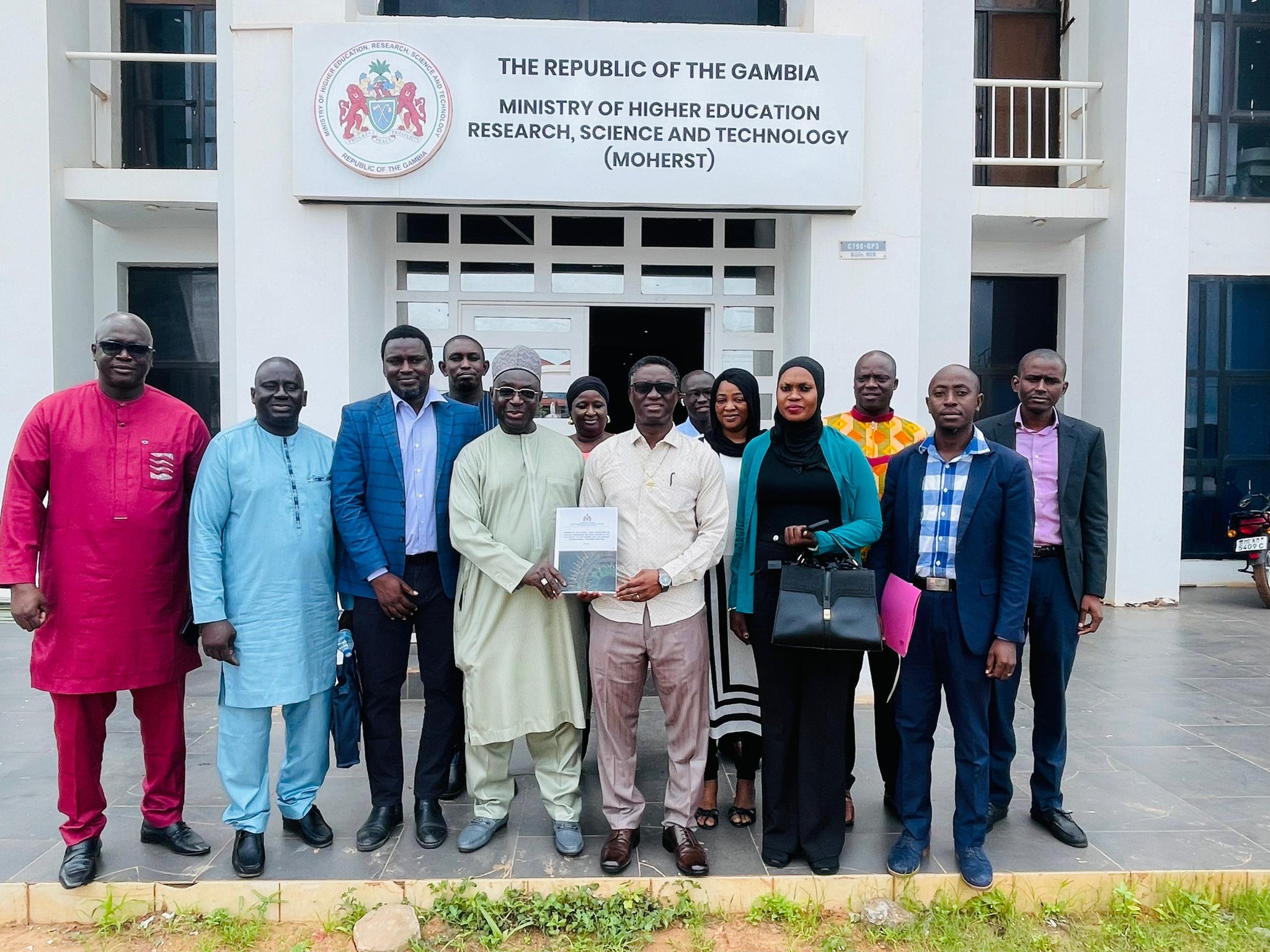Gambiaj.com – (BANJUL, The Gambia) – A comprehensive report presented to the Ministry of Higher Education, Research, Science, and Technology (MoHERST) has laid bare significant challenges facing The Gambia’s medical education and healthcare sectors. The report, developed by the Special Joint Committee on Medical Education and Healthcare of The University of The Gambia (UTG) and the Edward Francis Small Teaching Hospital (EFSTH), offers a detailed analysis of the pressing issues and provides recommendations for urgent action.
The Committee, which included representatives from MoHERST, UTG, EFSTH, and the Public Service Commission, spent three weeks investigating the root causes of inefficiencies in the School of Medical and Allied Health Sciences at UTG.
The findings highlight a range of issues that threaten the quality of medical education and healthcare delivery in the country.
Key among the challenges identified is the inadequate remuneration of teaching staff at the UTG School of Medicine and Allied Health Sciences. The report warns that unless salaries and benefits are improved, the school risks losing talented educators, which could further degrade the quality of medical training.
Another critical issue raised in the report is the sustainability of medical programs. The Committee’s sustainability analysis revealed that current resources and support structures are insufficient to maintain the long-term viability of these programs. This inadequacy, coupled with outdated and inadequate equipment for academic delivery, has hampered the ability of the institution to provide high-quality medical education.
The report also addresses the complexities of medical education in The Gambia, emphasizing the need for more robust strategies to ensure effective healthcare delivery. The Committee outlined specific recommendations, including revising job qualifications for teaching staff, investing in modern medical equipment, and developing new strategies to cope with the increasing demands on the healthcare system.
Presenting the report, the Committee’s Chairman, Dr. Mohammadou Kabir Cham, emphasized the urgency of implementing the recommendations to avoid further deterioration of the medical education system. “The challenges we have identified are significant, but they are not insurmountable. With the right approach, we can make substantial improvements,” Dr. Cham stated.
Honourable Minister of Higher Education, Prof. Gomez, acknowledged the gravity of the findings and assured that the Ministry would take the necessary steps to address the issues highlighted in the report. He affirmed that the report would be shared with key stakeholders, including the President and Cabinet Ministers, to ensure a coordinated response.
Chief Medical Director of EFSTH, Dr. Mustapha Bittaye, also expressed his concerns, noting that the challenges outlined in the report have long impeded the hospital’s ability to provide adequate healthcare services. He voiced optimism that with the report’s recommendations, the gaps in medical education and healthcare delivery could finally be addressed.
As the Ministry of Higher Education moves forward with the report’s findings, the focus will be on implementing the recommended strategies to strengthen the foundations of The Gambia’s medical education and healthcare systems, ensuring better health outcomes for all citizens.










